نقد و بررسی
مبانی نظری و پیشینه پژوهش کارکردهای اجرایی با منابع 2023-2025فهرست مطالب:
- مفهوم کارکرد های اجرایی
- بررسی تحولی کارکردهای اجرایی
- مؤلفه های کارکردهای اجرایی
- مؤلفه های تکمیلی کارکردهای اجرایی
- مدل های کارکردهای اجرایی
- منابع فارسی
- منابع غیر فارسی
بخشی از محصول
در مجموع تعریف واحد و قابل قبولی از وظایف اجرایی در بین کارشناسان وجود ندارد. در تعاریف ارائه شده به برخی از جنبه های خاص این کارکردها توجه شده است. کارکردهای اجرایی را به عنوان چتری برای فرایندهای شناختی پیچیده که رفتار هدفمند ایجاد میکند، دانست که شامل هدفگذاری، برنامهریزی، سازماندهی رفتار در طول زمان، انعطافپذیری، توجه، حافظه فعال، فرایندهای خودنظم دهی میباشد. کارکرد های اجرایی افراد را قادر می¬سازد تا با موفقیت در رفتارهای مستقل و هدفمند شرکت کنند. با توجه به دیاموند (2023) ، کارکرد های اجرایی شامل حافظه فعال، کنترل بازدارنده و انعطاف پذیری شناختی است.
منابع فارسی
- باقری، ندا (1403). تاثیر بازیدرمانی مبتنی بر رویکرد شناختیرفتاری بر کارکردهای اجرایی، رفتارهای یادگیری، کفایت اجتماعی دانشآموزان با اختلالات یادگیری خاص دوره اول ابتدایی شهرستان بروجن، سومین کنفرانس ملی تازههای روانشناسی تکاملی و تربیتی، 1-14.
- رضایی دهنوی، دهقان، اکرم، رشیدی، سمیه، و شجاعی، ستاره (1398). اثربخشی آموزش تنظیم هیجان بر افزایش مهارتهای اجتماعی کودکان با اختلال طیف اوتیسم، فصلنامه سلامت روان کودک، 6(1)، 138-148.
Non-Persian References
- Almarzooqi, S., Chilcot, J., & McCracken, L. M. (2017). The role of psychological flexibility in migraine headache impact and depression. Journal of Contextual Behavioral Science, 6(2), 239-243.
- Azar, E. E., Vargas-Rubilar, J., & Arán-Filippetti, V. A. (2023). Parental Skills and Academic Competences in School Children: The Mediator Role of Executive Functions. Revista Colombiana de Psicología, 32(1), 1-10.
- Brassell, A. A., Rosenberg, E., Parent, J., Rough, J. N., Fondacaro, K., & Seehuus, M. (2016). Parent’s psychological flexibility: Associations with parenting and child psychosocial wellbeing. Journal of Contextual Behavioral Science, 5(2), 111-120.
- Brown, Thomas E. (2006). Executive Function And Attention: Deficit Hyperactivity Disorder. Yale University, USA. International Journal of Disability, Development and Education, 53(1), 35–46.
- Dawson, P., & Guare, R. (2018). Executive Skills in Children and Adolescents: A Practical Guide to Assessment and Intervention. 4th edition. New York: Guilford Press.
- Dennis, J. P., & Vander Wal, J. S. (2010). The cognitive flexibility inventory: Instrument development and estimates of reliability and validity. Journal of Cognitive Therapy and Research, 34(3), 241-253.
- Demetriou, A., Mougi, A., Spanoudis, G., & Makris, N. (2022). Changing developmental priorities between executive functions, working memory, and reasoning in the formation of g from 6 to 12 years. Intelligence, 90, 101602.
- Diamond, A., & Ling, D. S. (2020). Review of the evidence on, and fundamental questions about, efforts to improve executive functions, including working memory.
- Fathirezaie, Z., Matos, S., Khodadadeh, E., Clemente, F. M., Badicu, G., Silva, A. F., … & Nahravani, S. (2022). The relationship between executive functions and gross motor skills in rural children aged 8–10 years. In Healthcare, 10(4), 616. MDPI.
- Gathercole, S. E. (2007). Phonological memory deficits in language disordered children: Is there a causal connection? Journal of Memory and Language, 29(3), 336-360.
- Gloster, A. T., Meyer, A. H., & Lieb, R. (2017). Psychological flexibility as a malleable public health target: Evidence from a representative sample. Journal of Contextual Behavioral Science, 6(2), 166-171.
- Gray, Brandon, Julian Eaton, Jayakumar Christy, Joshua Duncan, Fahmy Hanna, Sekar Kasi (2021). Proactive approach: Examples for integrating disaster risk reduction and mental health and psychosocial support programming, pp. 1-11.
- Hughes, C., Foley, S., Browne, W. (2023). Developmental links between executive function and emotion regulation in early toddlerhood. Infant Behavior and Development, 71, 125-146.
- Jeffay, E., Ponsford, J., Harnett, A., Janzen, S., Patsakos, E., Douglas, J., … & Green, R. (2023). INCOG 2.0 Guidelines for Cognitive Rehabilitation Following Traumatic Brain Injury, Part III: Executive Functions. The Journal of Head Trauma Rehabilitation, 38(1), 52-64.
- Lavigne-Cerván, R., Costa-López, B., Juárez-Ruiz de Mier, R., Real-Fernández, M., Sánchez-Muñoz de León, M., & Navarro-Soria, I. (2021). Consequences of COVID-19 confinement on anxiety, sleep and executive functions of children and adolescents in Spain. Frontiers in Psychology, 12, 565516.
- Nguyen-Van-Tam, D. P., & Smith, A. (2023). Further investigation of the effects of caffeine on implicit memory, allocation of memory resources, semantic memory and executive function. World Journal of Pharmacy and Pharmaceutical Studies, 12(2), 1564-1584.
- Palmiero, M., Fusi, G., Crepaldi, M., Borsa, V. M., & Rusconi, M. L. (2022). Divergent thinking and the core executive functions: a state-of-the-art review. Cognitive Processing, 23(3), 341-366.
- Park, S. Y., & Schott, N. (2022). The Immediate and Sustained Effects of Exercise-Induced Hemodynamic Response on Executive Function During Fine Motor-Cognitive Tasks Using Functional Near-Infrared Spectroscopy. Journal of Integrative Neuroscience, 21(3), 98.
- Sherif, H. S., Abulmakarim, F., & Kishk, N. A. (2021). Executive functions in an Egyptian sample of adults with generalized epilepsy. American Journal of Applied Psychology, 10(1), 10-15.
- Sohrabi, A. (2016). The role of cognitive flexibility and mindfulness in predicting student procrastination. Zanko Journal of Medical Sciences, 17(53), 50-61.
- Sorel, Olivier, Pennquin, Valerie (2007). Aging of the planning process: The role of executive functioning. Journal of Brain and Cognition, 66(2008), 196.
- Skidmore, E. R., Eskes, G., & Brodtmann, A. (2023). Executive Function Poststroke: Concepts, Recovery, and Interventions. Stroke, 54(1), 20-29.
- Turnes, V. H. S., & Piacentini, N. (2025). Introduction to Executive Functions. In: Reichert, R. A., Andrade, A. L. M., De Micheli, D. (eds) Neuropsychology and Substance Use Disorders. Springer, Cham. https://doi.org/10.1007/978-3-031-82614-6_10
- Vasquez III, E., & Marino, M. T. (2021). Enhancing executive function while addressing learner variability in inclusive classrooms. Intervention in School and Clinic, 56(3), 179-185.
- Ward, S. J. (2007). Effect of cannabinoid CB1 receptor antagonist SR141714A and CB1 receptor knockout on cue-induced reinstatement of Ensure® and corn-oil seeking in mice. Neuropsychopharmacology, 32(1), 2592-2600.
- Zong, J. G., Cao, X. Y., Cao, Y., Shi, Y. F., Wang, Y. N., Yan, C., … & Chan, R. C. (2010). Coping flexibility in college students with depressive symptoms. Health and Quality of Life Outcomes, 8(1), 1-6.
- Zelazo, P. D. (2020). Executive function and psychopathology: A neurodevelopmental perspective. Annual Review of Clinical Psychology, 16, 431-454.
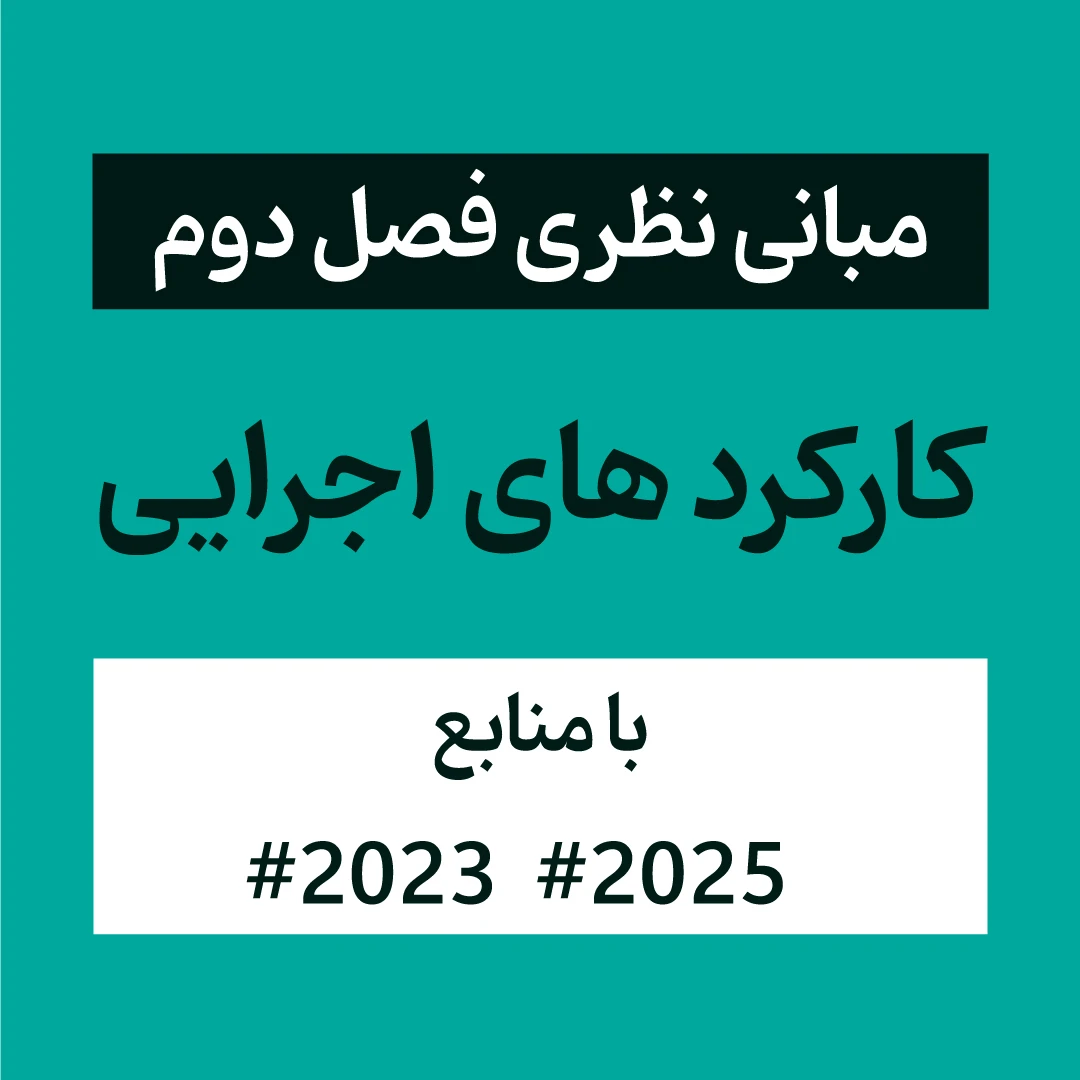
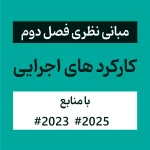
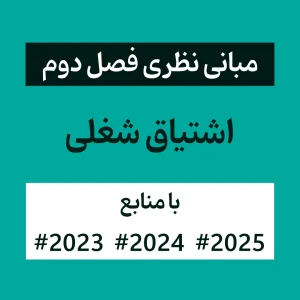
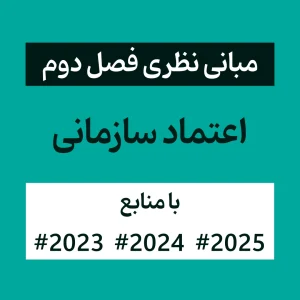
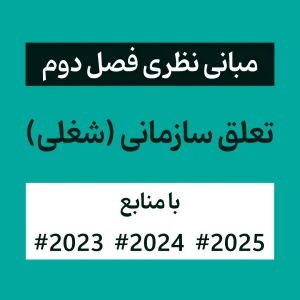
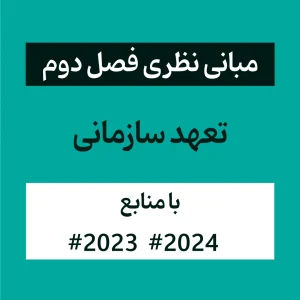
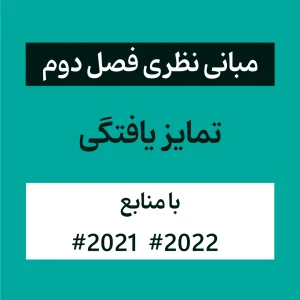

0دیدگاه